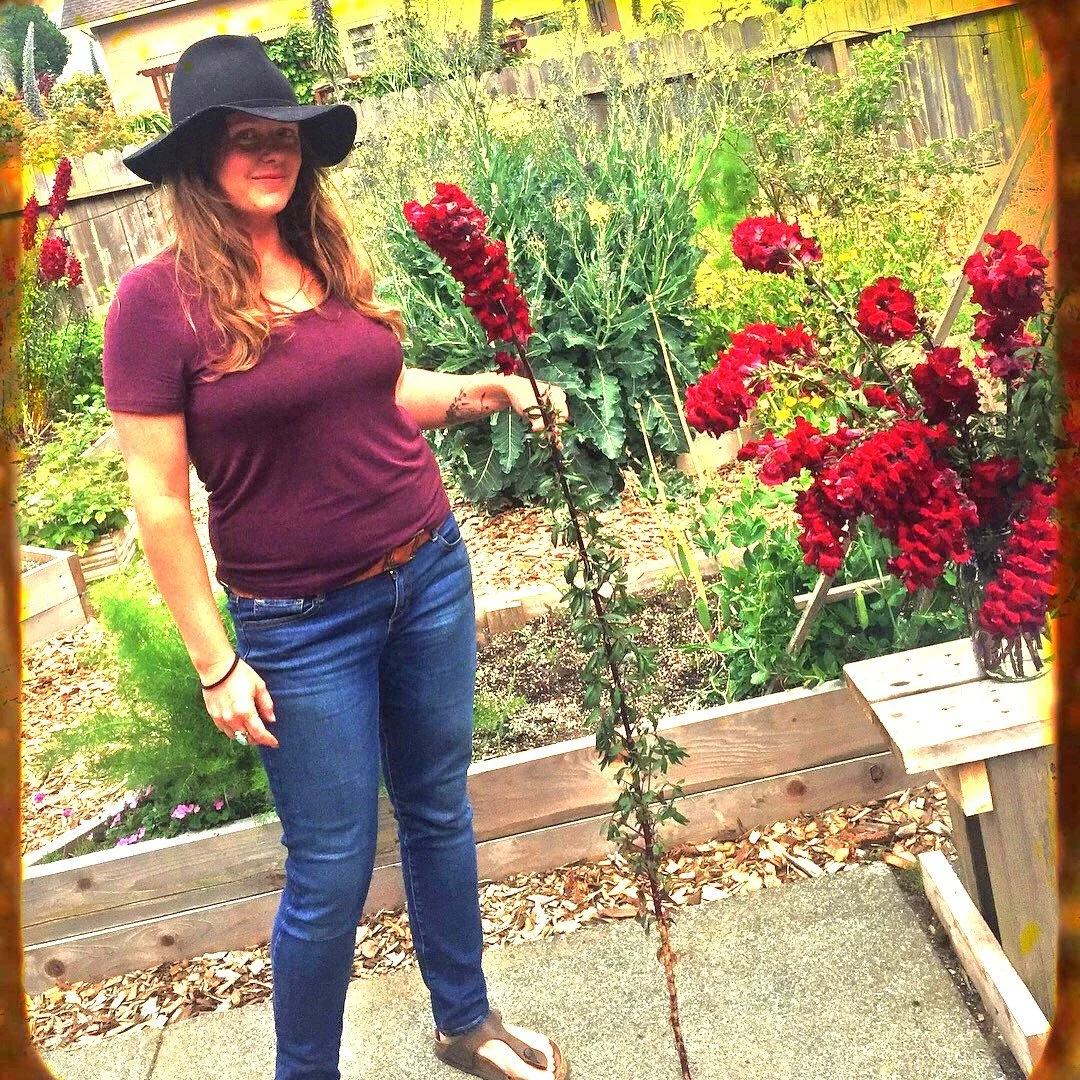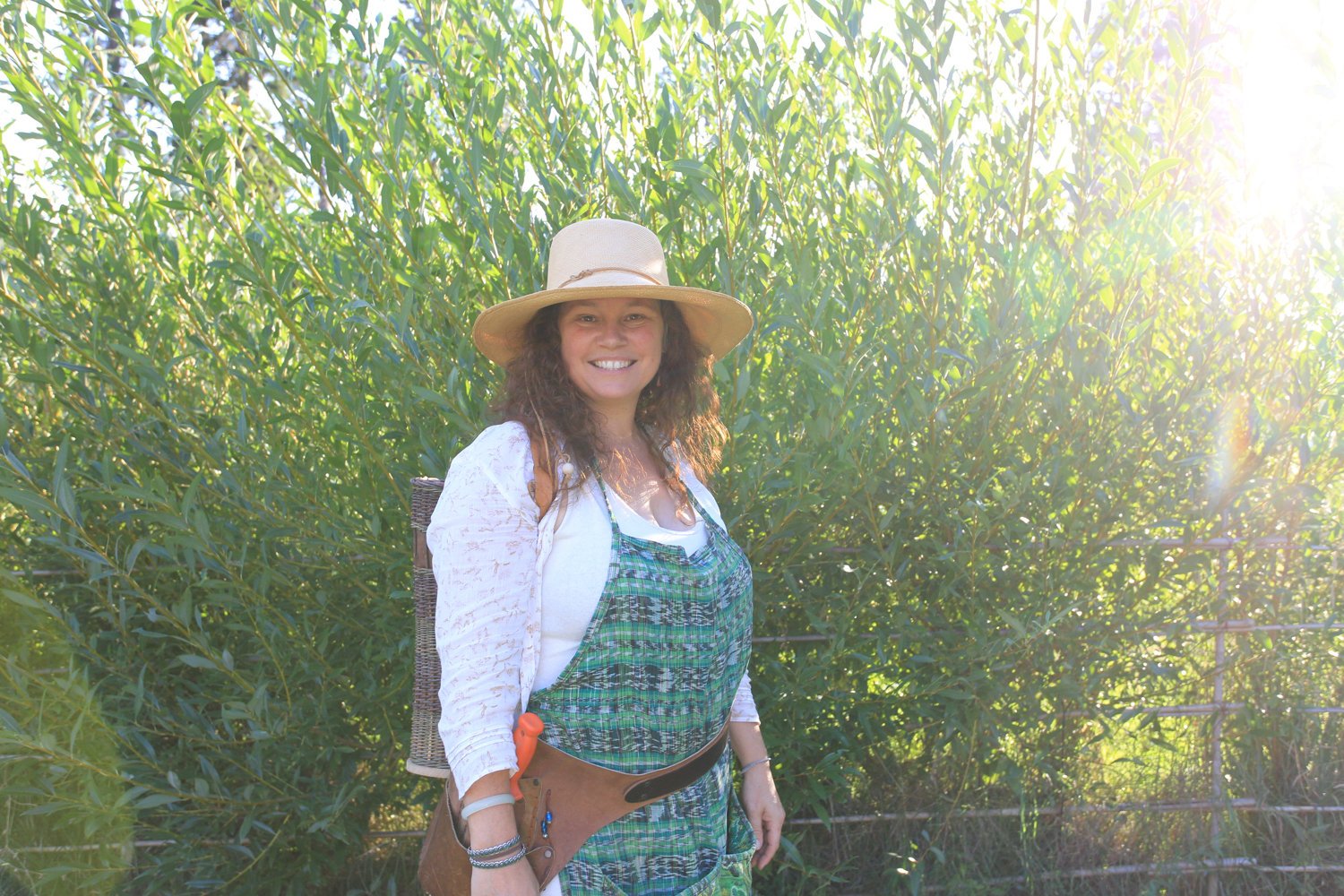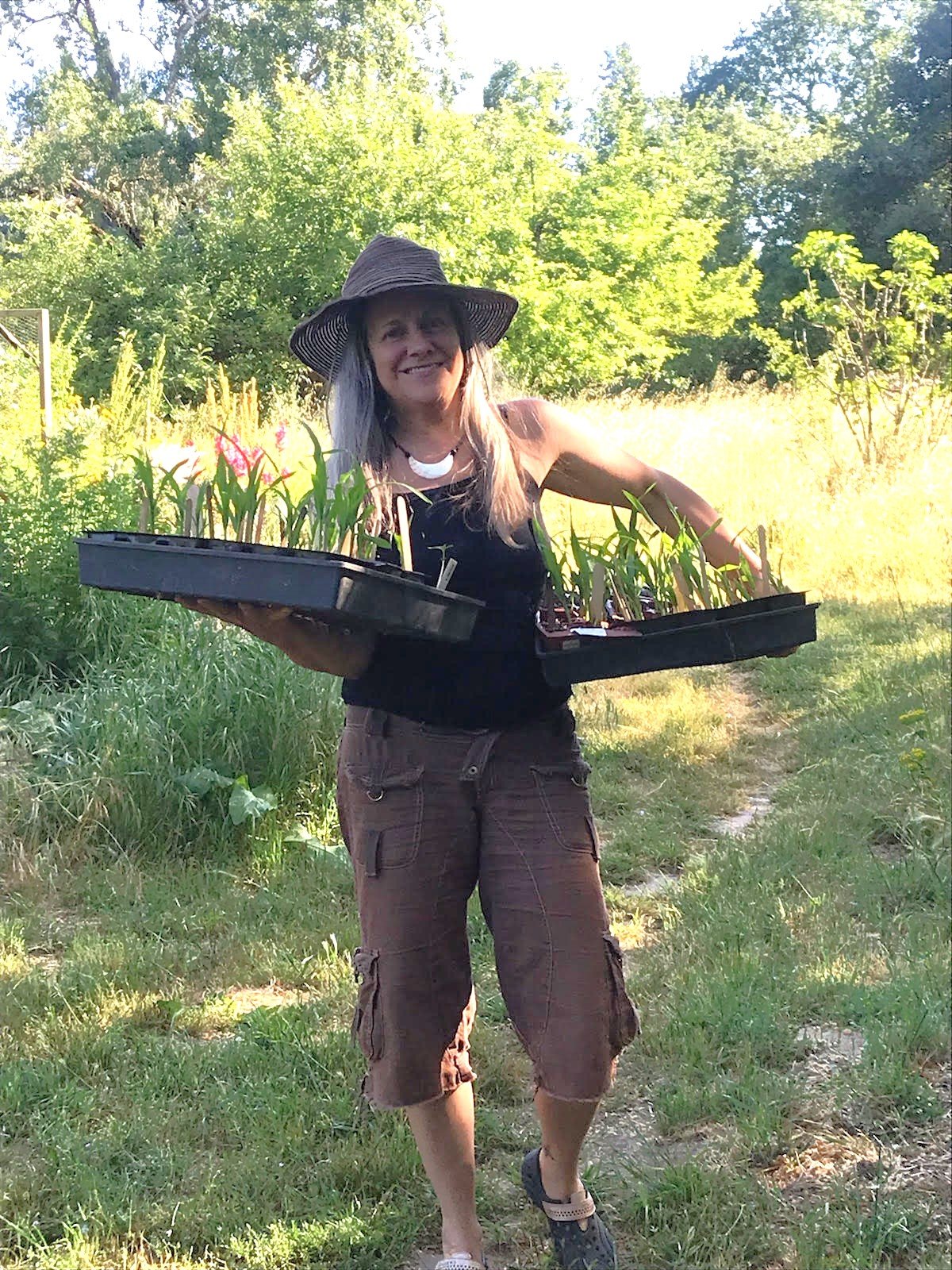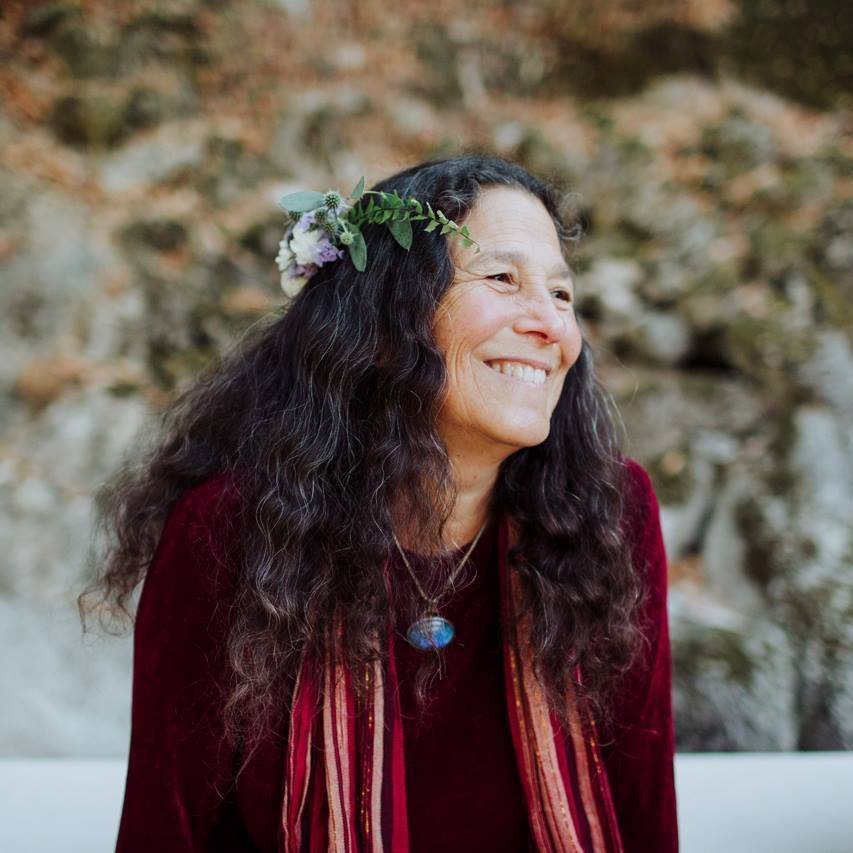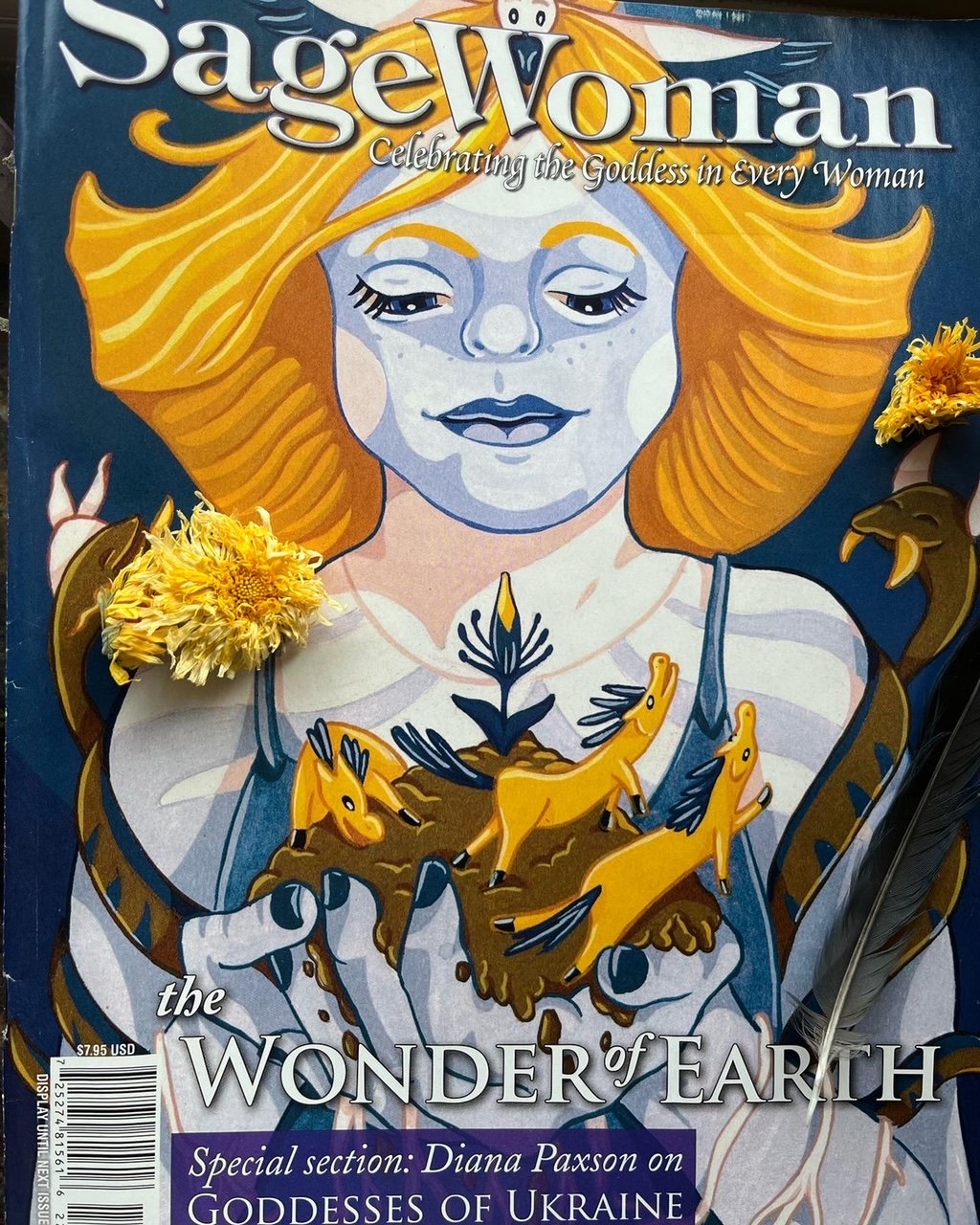Plant Sisters
This article originally appeared in Sage Woman Magazine 97th issue.
Most green or hedge witches love a volunteer plant that pops up unexpectantly. Sometimes we know just what to do with this new friend: other times we’re baffled by this green visitor and feel regret at not knowing best how to use it. Other times we just can’t get to that bumper crop of zucchini or plums before they rot, and guilt steals over us.
Instinctively, we know the plant world is a conscious collection of sentient beings who will teach us humans the profound reciprocal nature of service. Indeed, the farmers, medicine makers, community builders and teachers I interviewed for this article all agreed that plants and herbs crave to be used for the benefit of all Life. Some have even said it is the plant kin-dom, as in kin or family to humans. When I asked my plant sisters what a plant ally is and what is your relationship with plant allies, they all commented on the importance of an intentional reciprocal relationship with herbs, plants and trees.
Ami Wruck, a teacher and medicine maker who has been studying herbal medicine, nutrition, natural wellness and plant spirits for 20 years, believes there is no substitute for sitting with a living plant or herb if you want to utilize its properties for food medicine or even body care. “I am in constant relationship with the plant world.” Ami says. “I observe herbs that arrive without being planted and welcome them as a guest with a gift for me to uncover. Often, I’ll look up the plant and find it carries the medicine that I most need at that time.”
Pictured L-R: Ami Wruck, Elise Higley, Gwen Jensen and Michelle Vesser
Ami works with herbal simples, in other words one plant at a time rather than a blend of herbs and plants. She recommends sitting with plants and simply exchanging breath. Narrow your focus and seek to observe 150 things, she suggests. Look beyond the obvious to open to the sensuality, qualities, personality, vibration and energy of the plant. Eventually, over time, as in any relationship, your relationship with specific plants deepens. Plants visit in dreamtime and guide through a language that is lyrical, not to be boxed in with words, but through the senses of the clairs - clairvoyant, clairsentient, clairaudio, etc.
Elise Higley, owner and farmer of Oshala Farm, defined a plant ally as a “totem plant that you resonate with and experience a deep and abiding connection of give and take.” Elise’s totem plant is nettles, which also is the first crop planted on the 113-acre Oshala Farm that she and her husband Jeff established in 2013 in Southern Oregon. “Nettles seems to just surround me. I always see it. I trust nettles: it’s taken care of me emotionally, physically and financially. It’s the first crop on the farm and so the first plant we sell to grocery stores throughout the Pacific Northwest. Nettles has been fortifying for my body and our farm.”
Elise has studied herbal medicine for more than twenty years and grows more than seventy crops for farm-direct bulk herbs. She uses organic practices and hand-blends herbs for teas, as well as offers herbal syrups, vinegars, oils, hair rinse and an insane fire cider that will knock a cold into next week.
Elise was recently offered a handsome sum for her nettles roots but couldn’t bear to tear up the first crop that she ever planted on their farm: the relationship with her totem plant was far too sacred. “Nettles and I have a ‘I got your back and you’ve got mine’ understanding. Even our personalities are alike: we’ll get your attention, almost loud and prickly at first, but really good for you.” Elise laughed as she added, “I swear if you just listen to me, you’ll love me and we’ll get along wonderfully.”
As Elise’s cousin, I can tell you, she’s speaking the truth. Ten years ago, Elise insisted that I accompany her to the Northern California Women’s Herbal Symposium. Founded in 1991, by Terri Jensen and Karen Aguiar, this symposium celebrates herbs, sustainability and sisterhood. This symposium gives me the opportunity to drop deep into myself and commune with nature and fellow sisters in a magical way that underscores our unity. Some classes single out specific plants and herbs, which is like meeting a new friend.
Terri’s sister Gwen Jensen who has been an integral part of the symposium since its inception, says, “Herbs provided the structure to build a community and collaboration of plant-loving sisters. Whether you are a teacher, organizer, volunteer or a student, everyone holds equal parts responsibility and joy to create in the symposium space.” Gwen began her relationship with the plant world by making flower essences. “I began building a meditative practice with the plants. I learned to listen so that I could hear the frequency and voice of the flowers. I discovered how to sense differently: taste a color or see a sound.
“I have found that plants are just waiting to assist the evolution of humanity. To cultivate an herbal ally is to have a full relationship: like our roots mingled together in collective consciousness and in complete alignment.”
I met Michelle Vesser at the symposium during one of her soul retrieval classes. Michelle started gardening in 1986 at The Farallone’s Institute which is now Occidental Arts & Ecology Center (OAEC) where she learned to build living soil, cultivated crops, and seed saving. Over her 30 years working with the soil and plant world, she understands the reciprocity of earth and its yield. “Plants consistently respond when we adamantly build, and sometimes rekindle, a relationship with them. Since the beginning of time, we have evolved because of plants: they exhale oxygen and we take it in. Over time we have stepped away the natural world in the name of progress. Although we have forgotten our relationship with plants they never have forgotten us. The plants are happier when we step back in.
“When I have a deep relationship with plants, what I gain is magic, medicine and Eros for Life. What the plant world gets in return is the spirit and energy of being remembered as well as being seen and used for the gifts they were meant to offer.”
These plant sisters never anthropomorphize the plants’ intention, as if their service to humanity could in any way be seen as a subservient role. The plants are guiding us back to wholeness – we owe them our gratitude and respect. It is truly when we look at plants and herbs, trees and flowers as equal that the magic begins.
“When we see land as a community to which we belong, we may begin to use it with love and respect” is a famous quote of Aldo Leopold, father of wildlife ecology, who called for a land ethic. “Land then is not merely soil; it is the fountain of energy flowing through a circuit of soil, plants and animals.”
Indigenous wisdom keepers of plant medicine implore us to consider the historical connection between the people and land before wildcrafting. Take a moment to drop into the environment and see if you can sense any existing relationship. State your intention, either aloud or silently. Ask permission. Proceed slowly and respectfully. Await guidance and give offerings such as water, saliva, tobacco or other herbs, even a single hair.
Although plants yearn to be used, it may not always be in the way you imagine. Connecting with the plant world is a constant practice of taking off human blinders, letting go of thoughts and dropping into feeling and intention of connection. Even weeding, you can communicate with the plant that once discarded, the plant will be composted or go into the fire pit to keep you warm.
If you make herbal tea and can’t compost, there nothing evolved about feeling guilty for not seeing the plant all the way back to the earth. You must learn to trust that your best is enough.
Ami comments, “Once Motherwort flourished in my garden and I never made time to harvest. Reflecting back, I know Motherwort was begging to be of service. I needed the plant badly and wished I had made it happen. But herbs hold no regret in their timeless reality. I have met Motherwort since and now we have a relationship that I simply wasn’t ready for earlier.
“When I stay open to the plant world, it always finds a way in. For example, I never bonded with the desert environment of my mother’s home. But I had returned for a family funeral and took a walk without specific intention and yet I could feel I was being pulled toward something. To my amazement, I found an oasis I never knew existed. Sage, my plant ally, had called me into a hidden and lush wild garden of three different sage, docks, nettles, mushrooms and flowing water that provided the protection and sanctuary I needed most.”
A plant ally is the friend who responds when you call and the one you hear calling you to your highest sense of self. Together, we elevate each other.
